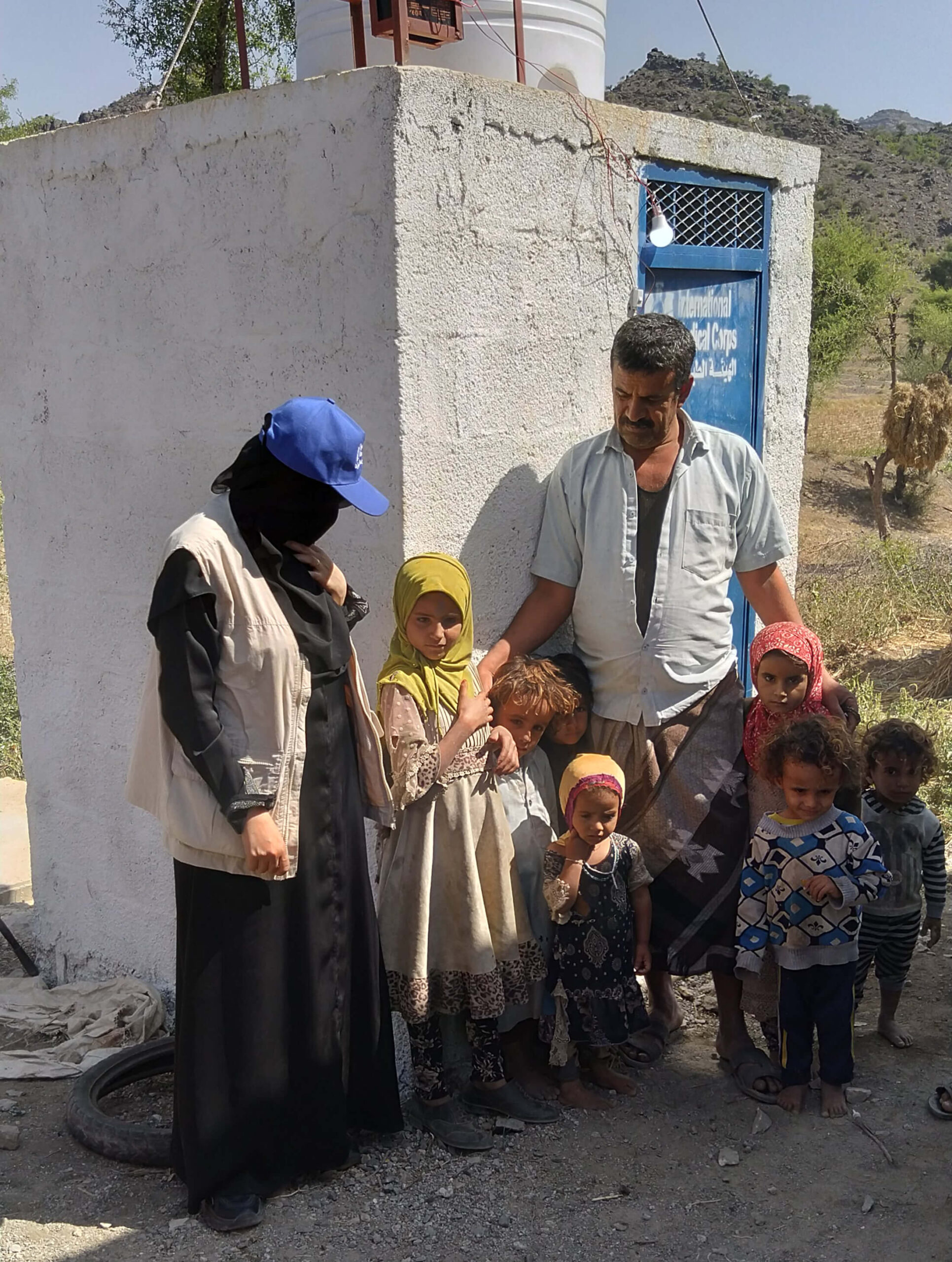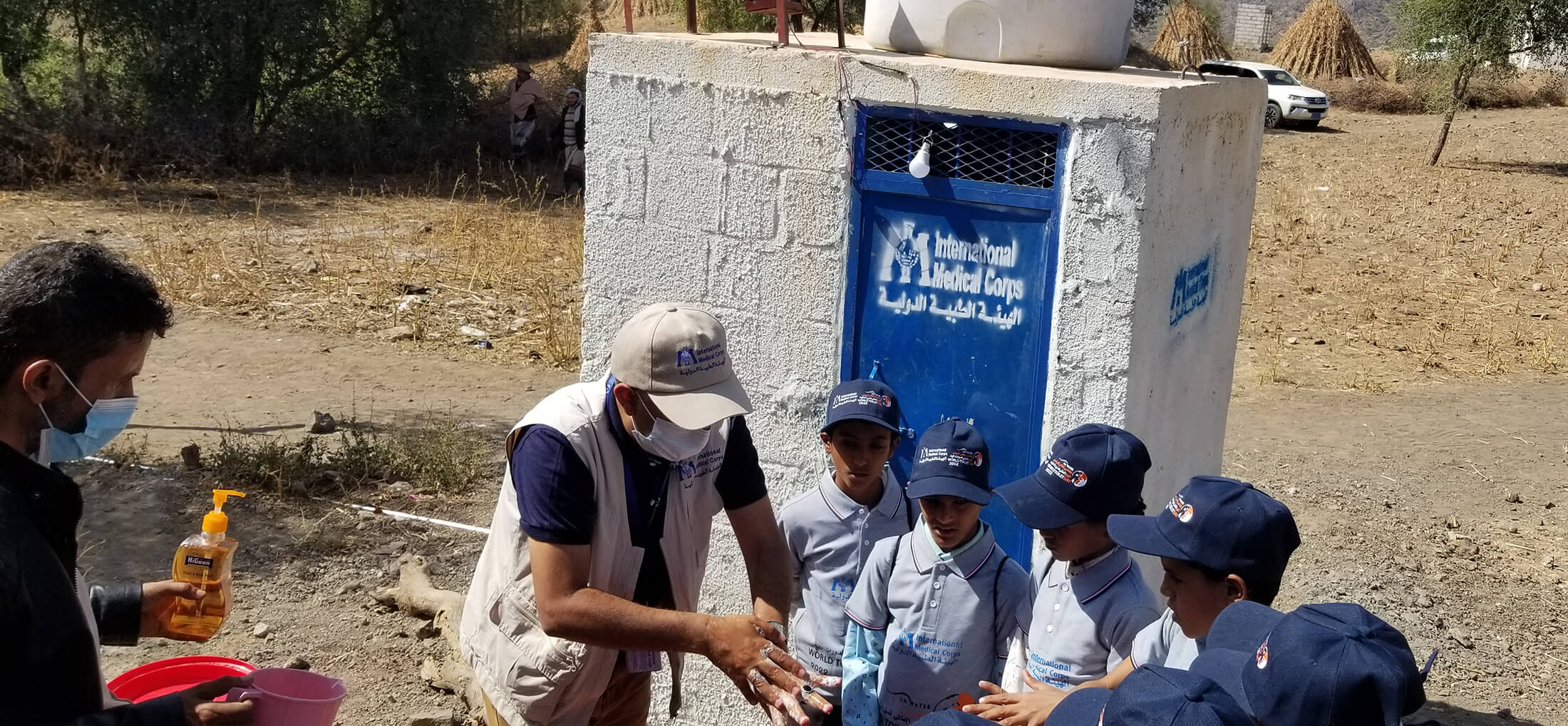Editor’s Note: International Medical Corps’ Yemen Blog presents a rare view of life in Yemen, chronicled by our first responders as they battle one of the world’s worst humanitarian disasters—one fueled by poverty, hunger, disease and a seemingly endless war, now in its ninth year.
The entry below is the second written by Dr. Esmail Al-Sabahi, our Senior Hygiene Promotion Officer, who joined International Medical Corps in 2018 and is based in Ibb, Yemen’s fourth-largest city, where he was born and raised. He completed his university studies in Syria and Malaysia, where he earned a PhD in Environmental Science, specializing in water quality and contamination. He writes below about a cautious mood of hope among a people who have lived through more than eight years of conflict.
It’s hard to believe that we have endured more than eight years of war with so much destruction and death, and the displacement of more than 4 million people. A blockade linked to the war still impedes the import of food, medicines and other essentials needed for survival, and causes its own quiet suffering in a country that produces few of its own needs. The impact of these realities continues to make everyday life in Yemen a nightmarish struggle for survival.
But as a fragile ceasefire—originally slated to last six months, as agreed to by the warring parties more than a year ago—continues to hold, people here are quietly beginning to hope, albeit cautiously, and to ask: could the ceasefire become permanent? Could the war be about to end? What does it mean for us?

To be sure, there are no official pronouncements, high-profile new initiatives or draft peace plans—at least none that have been made public. But, driven by desperation, exhaustion and dreams, talk of a lasting peace now comes up in small gatherings in communities I visit as part of my job to provide humanitarian assistance for those who have suffered terribly from the war’s fallout.
Two of those places are the villages of Al Ahad and Alkhorshoob, located in the central part of Aqafr district in northern Ibb governorate, where our work took us during the past year. The people there are dirt-poor. Most lost their homes and jobs when they were forced to flee fighting earlier in the war that destroyed areas further north, in Hodeida governorate, including land that had been their ancestral home for generations. They eventually ended up in these villages, hoping to build a new life—one of safety and dignity. They came from various places, but all shared one thing in common: they were starting with nothing, in hastily erected displacement camps anchored to an area of barren, rocky land in a part of Yemen that is otherwise green and fertile. Some family members have physical disabilities, while others suffer from chronic disease. Life has not been easy here.
But for the first time I can remember, some residents are expressing a cautious optimism that the war might finally end. If that happens, they say, perhaps they can return to the lands they fled when the fighting first came. Some feel they might even get their jobs back in the towns and cities where they had worked, or as farmers in more rural areas. Still, the mood remains cautious and unsure. Indeed, as many residents remain convinced that the war will continue for the foreseeable future.
We met one family of seven, who said they had come from Yemen’s main port city of Al Hodeida, on the Red Sea. The head of the family, Ali Almedbaah, described how they had been forced to leave after the area around them became part of the war’s front lines. Ali said he had to give up his job as a schoolteacher, leaving his family with no reliable source of income. Traveling with a disabled child, the family first went inland, to seek refuge in Ibb, but with no suitable work available, they were unable to afford life in the city. The family eventually found themselves in the governorate’s rural Aqafr district, exhausted and destitute. Like many who had arrived here before and after them, they arrived with nothing. In fact, the villages are themselves by-products of the war—inhabited mainly by families displaced by the violence elsewhere in the country.

Village residents, all too familiar with the nightmare of being internally displaced persons (IDPs), decided to help Ali and his family. They banded together to build a one-room dwelling. It sheltered the family from the elements but had no additional facilities, such as safe drinking water or a working latrine.
As part of our humanitarian work to provide residents with potable water and accessible and safe sanitation, we built toilets with accompanying handwashing facilities in both villages, to provide a measure of dignity and improve the safety and health of women and girls. Well-functioning sanitation was a priority, essential to reduce the risk of disease that comes with poor sanitation. Construction was difficult, with large rocks slowing our efforts to drill the latrine pits. But in Yemen, we knew that good sanitation was essential to improving public health. Few of us have forgotten that the world’s largest cholera outbreak struck Yemen in 2017.
Once completed, we conducted hygiene promotion sessions in both villages. The initiative drew the interest of residents—especially the children, who were excited and smiling, especially as they each received one of the hygiene kits we distributed. There was laughter that day, which was good to see because the children also gained important knowledge about the benefits of using toilets and the dangers to public health of open defecation.
During our first visit to the villages in August 2022, I remember thinking that the living conditions were far worse than most other communities we had seen. But returning this past April, after completing the constructions of latrines, we could only feel proud of and happy about our work that day. Together, the much-improved public health conditions in the villages, along with talk of peace and the hope written the faces of Ali and his children that Yemen could be on the verge of calmer, safer times that could signal the end of our national nightmare seemed to brighten the mood. And with the war on pause for several months longer than expected, some residents said they have started looking for jobs locally.